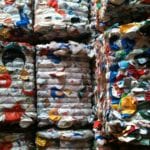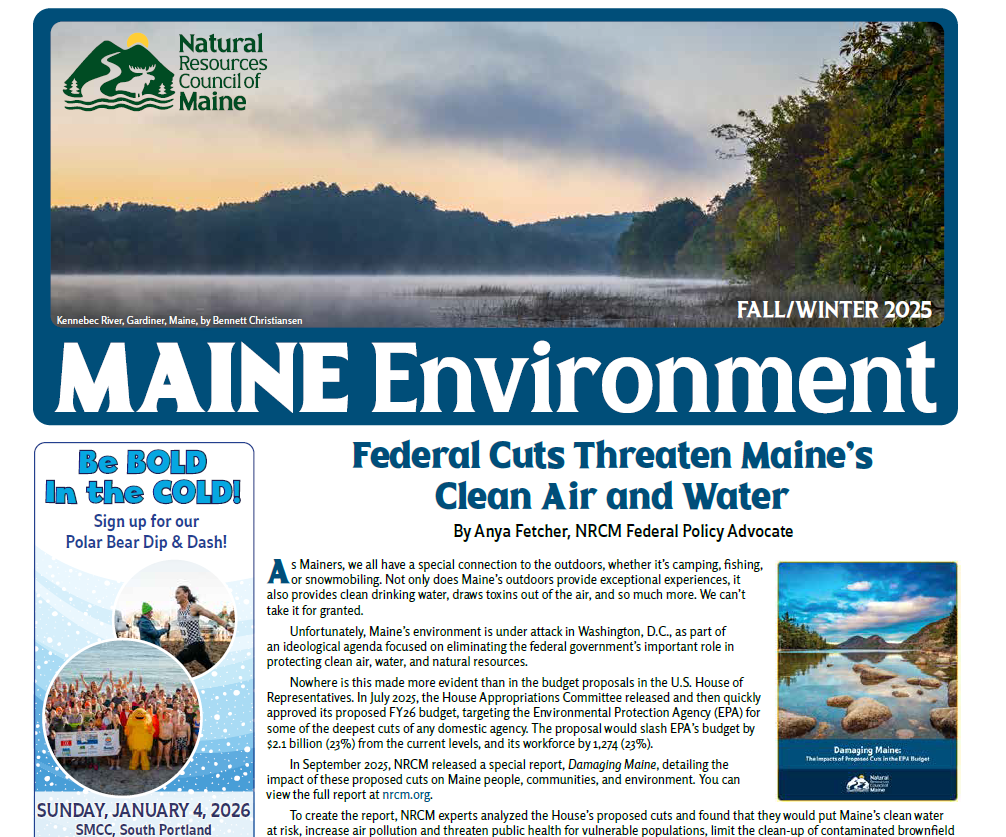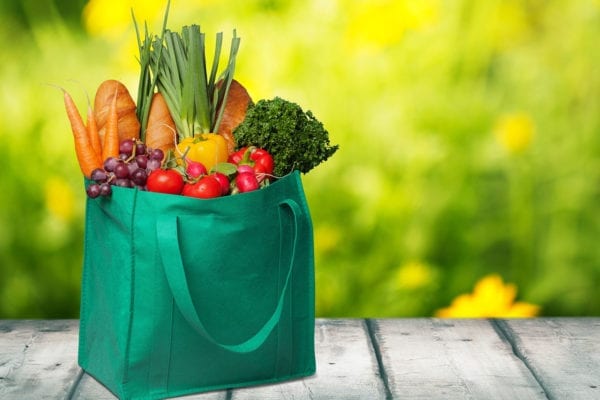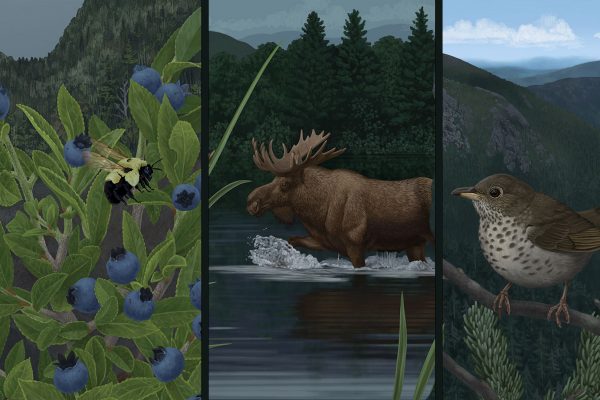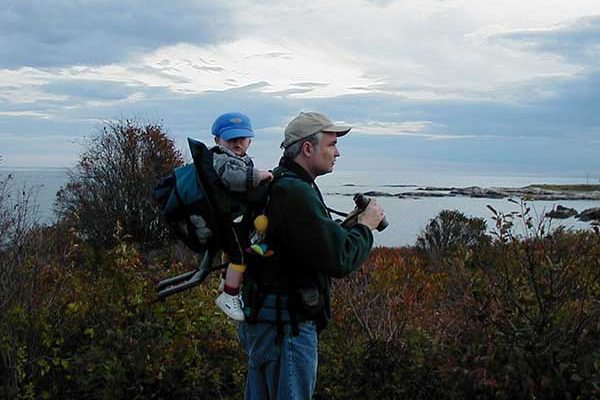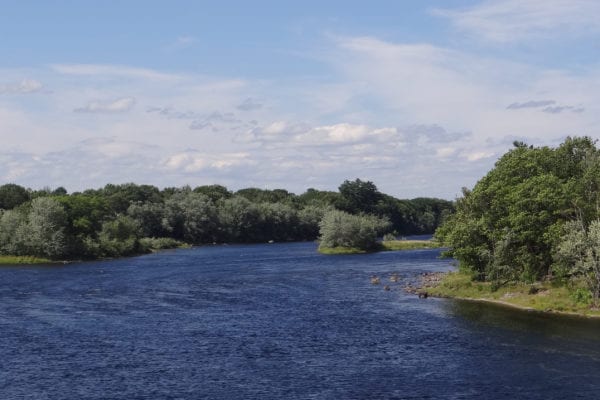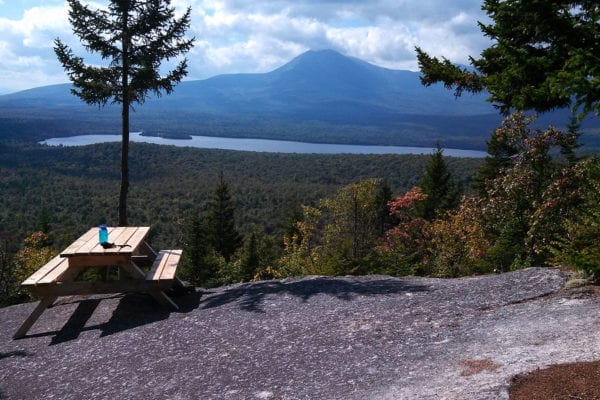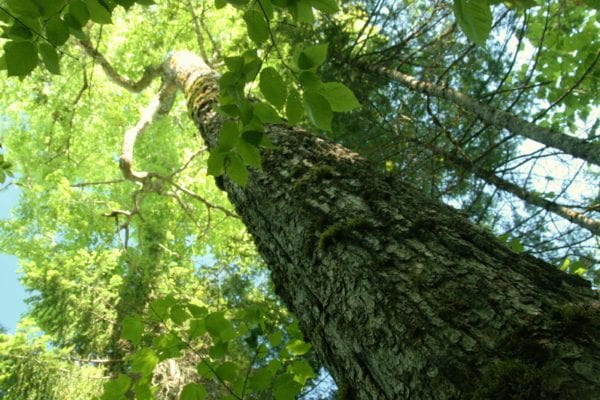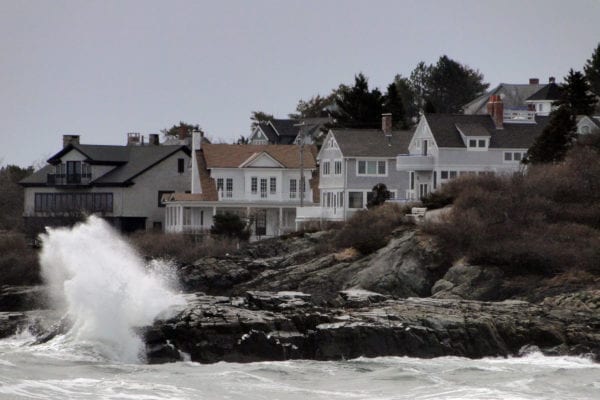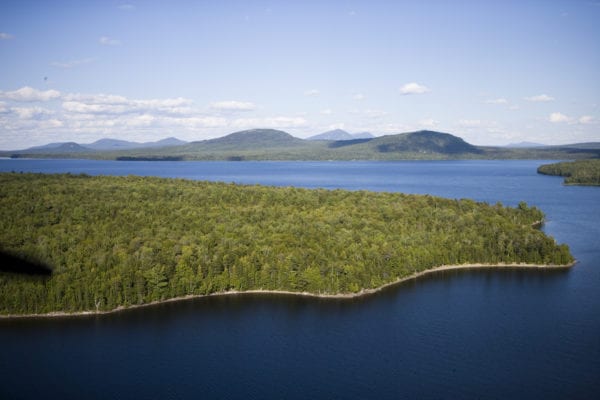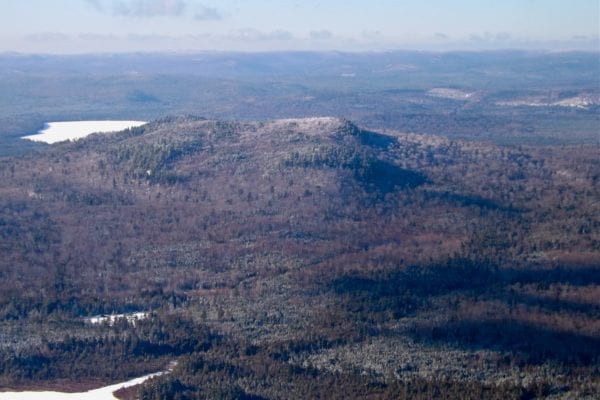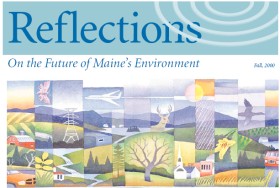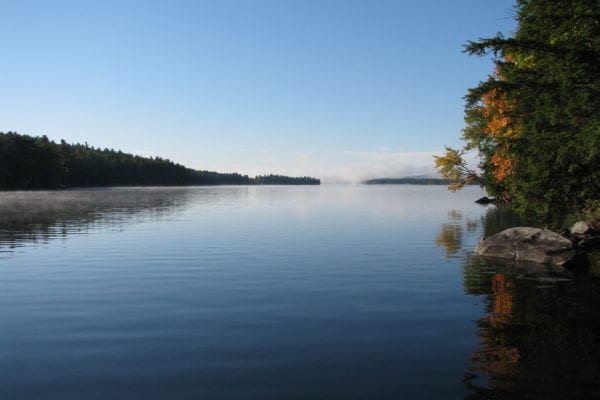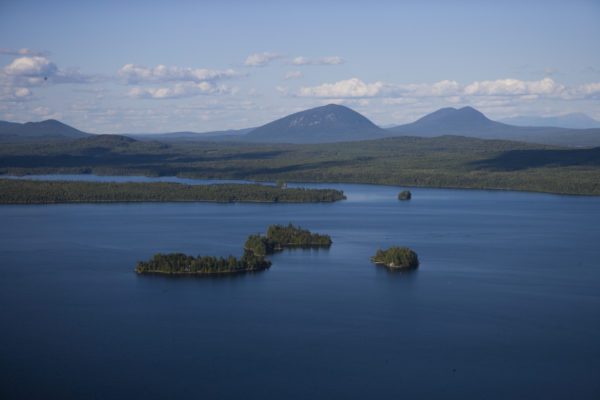NRCM is dedicated to making information available on issues facing Maine’s environment and the people who rely upon it. Our publications, including our Maine Environment newsletters, will, we hope, help you better understand the topic of interest and provide you with information that you can use in your own work on behalf of the people, wildlife, and environment of Maine.
Maine Environment newsletters are informative news publications that keep NRCM members up to date on the environmental challenges facing Maine, including ways to take actions to help.
In the most recent newsletter, learn about proposed cuts to the Environmental Protection Agency's budget, which would put Maine's clean air and water at risk. Also meet our new Board members and the 2025 Conservation Leadership Award recipients. Meet our Philanthropy team, including our new Senior Director of Philanthropy. And finally, get ready to celebrate anniversaries of important victories for Maine's environment — there are several coming in 2026.
To view all Maine Environment newsletters, including our annual Explore Maine insert, Legislative Priorities, and Legislative Report Cards, please scroll to the bottom of this page.
Find out how to clean, control pests, and dispose of household cleaning products in a way that’s healthy for your family and the environment! Features dozens of easy “recipes” to clean drains, control ants and insects, polish your shoes, and more-the non-toxic way.
Do you know how much food the average Maine family wastes each year? Want to learn how to reduce your food waste, plastic bag and foam food container use? Our “Reduce Your Use” brochure includes tips for lessening your impact on the environment while saving money, including simple changes to your daily habits such as grocery shopping, consumer purchases, and cutting back on food and other waste such as plastic bags that take centuries to break down.
Our special report, Maine’s Ecological Reserves: Meeting the Promise of Saving All the Pieces, includes stunning illustrations from Maine-based artist Zoe Keller to describe the value of the state's ecological reserves and details compounding threats to Maine’s wildlands that reinforce now is the time to protect the full range of Maine’s habitats.
Taking steps to improve energy efficiency in your everyday life can save you money, reduce pollution, add to your comfort, and improve your sense of well-being. Around the house, on the road, and in your community, following these tips can help you become more energy efficient today.
Explore Maine offers ideas for enjoying the best of Maine’s great outdoors. This year, the focus is on Maine trails since the Legislature passed the Maine Trails Bond. Download or request a copy of Explore Maine today to see staff's and supporters' trail picks, to read staff reviews of books by our supporters, see new NRCM gear, and more!
Are you a pet owner who wonders about the best way to clean up after your dog or cat (or both!)? The Natural Resources Council of Maine has created this new, handy card full of tips for the most environmentally friendly ways to clean up after your four-legged family members.
We want to help you make the most of your visit to the Katahdin Woods & Waters National Monument. Download or request a copy of this visitors guide to find out about the area, view a map, and find the best places to hike, bike, and paddle. We have also compiled a list of excellent food and local accommodations. Have fun exploring the new Monument!
This guide will be of interest to anyone who has fished, boated, or otherwise enjoyed Maine’s rivers and streams. It includes maps of major waterways and dams; photographs of Maine rivers and the fish, wildlife and people that use them; stories of successful dam-removal projects, and information about hydroelectric power, dam-removal controversies, and fish passage. The publication also highlights special celebrations of Maine rivers.
This comprehensive guide for Maine schools identifies the serious problems with wasting food and offers solutions, explaining step-by-step how to take action, how to work as a successful team, and how to involve others in the school. Use this guide and you will be well on your way to reducing food waste in your school.
NRCM's new report features business and civic leaders from the Katahdin region describing how Katahdin Woods and Waters National Monument is providing positive benefits to their communities. The report was issued to coincide with the one-year anniversary of the National Monument, which was established on August 24, 2016.
The LePage Administration privately developed a plan to dramatically increase logging on Maine’s public lands without disclosing the plan to Maine lawmakers or the public and without providing a science-based justification or opportunity for public comment. Internal documents secured by NRCM reveal that the state foresters and land managers responsible for timber management in Maine’s public forests initially were excluded from discussions of the plan, which departs radically from a decades-long state policy to grow bigger, older trees in Maine’s public forests.
Mainers from Mars Hill to East Dixfield to Higgins Beach share how global warming pollution is affecting their health, their income, and their environment. They are farmers, lobster scientists, innkeepers, maple syrup makers, ski area operators, manufacturers, foresters, and others, and they support common-sense actions to reduce the global warming threat. Read about the impact global warming is having on Maine and what you can do to make a difference.
The Moosehead Lake region is a treasure, a place of great natural beauty and ecological resources, steeped in tradition and history. Development pressure from companies such as Plum Creek put the future of the Moosehead Lake region at risk. But an alternative vision is achievable, one that would provide a balance of conservation and carefully planned development – one that could become a model for Maine, even the nation. A Vision for the Moosehead Lake Region describes that vision.
NRCM produced an investigative report showing that documents in the possession of Maine’s Department of Environmental Protection (DEP), but not disclosed to Maine lawmakers or released to the public, reveal that an open-pit mine at Bald Mountain in Aroostook County is likely to pollute rivers, lakes, and streams with sulfuric acid runoff and arsenic pollution.
This special publication by the Natural Resources Council of Maine is designed to provoke thought about the future of Maine’s environment. In this publication you will find essays, poems, art and photography that capture the passion that Maine people have for our natural world, as well as our concerns about protecting Maine’s environment for future generations.
Read the Natural Resources Council of Maine’s investigative report documenting damage caused to the State of Maine’s lake protection efforts under the Administration of Governor Paul LePage.
Maine’s North Woods has had huge changes. Most of the paper companies that owned the lands for decades sold out to investment groups, nonprofit groups, and wealthy individuals. Some of the new owners have big development plans. Public access to the forest, lakes, and rivers is at risk. Aggressive harvesting continues and is adversely affecting wildlife habitat. Read about the changes and some of the options for the future here.
Maine Environment Newsletters
2024
2024 Fall/Winter Maine Environment
2024 Spring/Summer Maine Environment (including 2024 Legislative Report Card and Explore Maine)









